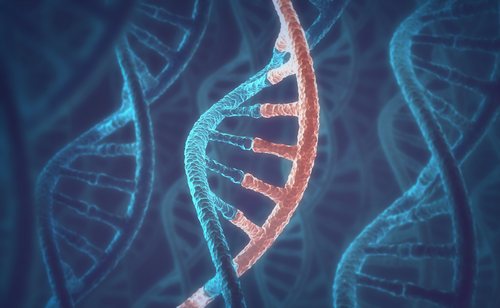Gene Variations May Benefit Those with Duchenne Muscular Dystrophy

Gene variations that decrease the production of a certain protein appear to reduce muscle strength in patients with Duchenne muscular dystrophy (DMD) but improve their disease progression, according to a study.
The research, “Evidence For ACTN3 As A Genetic Modifier Of Duchenne Muscular Dystrophy,” was published in the journal Nature Communications.
DMD is caused by mutations in the dystrophin protein, which plays a key role in the proper functioning of muscle cells. However, changes in the coding sequence of certain genes – called polymorphisms – may influence the way the disease develops. For this reason they are called disease modifiers.
Previous studies have shown that the common R577X polymorphism, or genetic variation, in the ACTN3 gene blocks production of the α-actinin-3 protein. The absence of the protein is associated with less power, but also increased endurance and resistance-training performance in some athletes.
Studies with mice have also shown that lack of α-actinin-3 caused reduced muscle mass and strength, but increased endurance capacity, fatigue resistance and response to training.
“It is clear that ACTN3 genotype significantly influences muscle function in both elite athletes and healthy individuals and hence may also be capable of modifying muscle function in DMD patients,” the researchers wrote. “[T]hese data led us to hypothesize that ACTN3 is capable of acting as a genetic modifier of DMD, and that the shift towards slower muscle metabolic properties associated with α-actinin-3 deficiency may have a protective effect against the pathogenesis of DMD.”
To test their hypothesis, researchers analyzed 272 DMD patients from the Cooperative International Neuromuscular Research Group’s DMD natural history study (DNHS).
Patients were divided according to parameters such as steroid treatment, ability to walk and age (6–10). The group took part in quantitative muscle testing (QMT) and timed functional testing that involved a 10-mile walk.
Results indicated that the R577X polymorphism in the ACTN3 gene was associated with significantly reduced muscle strength but better times in the 10-mile walk in young DMD patients.
Researchers also developed a mouse model lacking α-actinin-3 and dystrophin. Similar to what happened in DMD children, the mice had reduced muscle strength. However, they recovered from fatigue faster than normal mice. They were also less susceptible to damage caused by a muscle returning to its original position after exercise, a characteristic of dystrophic muscle that worsens with age.
The results suggested that lack of α-actinin-3 reduces muscle performance but improves the progression of DMD.
Further analyses indicated how α-actinin-3 deficiency exerts its protective effect: It increases oxidative muscle metabolism by activating a protein called calcineurin.
“Here we present evidence that a common null polymorphism in the ACTN3 gene has a significant effect on muscle strength and function in young ambulant DMD patients,” researchers wrote. “Taken together, these data strongly suggest that α-actinin-3 deficiency results in reduced power output in dystrophic muscle and that ACTN3 R577X genotype should be considered when evaluating quantitative muscle tests in DMD patients.”






